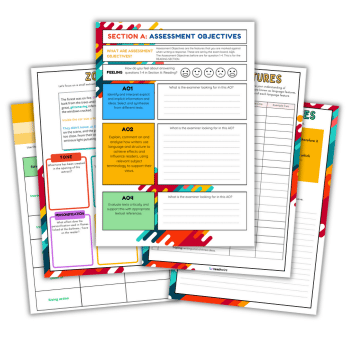The Long and Winding Road – How To Help Your Students Plan Their Revision Routes With Care

Revision shouldn't be a last minute strategy, advises Alex Quigley – it ought to be an integral and ongoing part of every learning journey…

The new school year stretches out ahead like one of those American roads that extend far beyond the horizon. As the long weeks begin, the summer term, with all of those critical terminal examinations for our students, can feel like a never-ending and exhausting drive away.
Our students may often fail to think about the length of the highway, or their destination, but us teachers rarely do.
Let’s face it: examinations are going nowhere as the final stop on our students’ school journey. As we know all too keenly, young people today face more examinations than ever. We can wring our hands about a system seemingly geared toward a battery of tests, but we also need to think a little more constructively about helping our students to master those they will inevitably face.
3 is the magic number
Teachers and students need to recognise that mastering exam success, even in our new, more challenging conditions, is achievable. Stress is a challenge, but we can mitigate and even control its impact if we help young people maximise their memory potential. We need to teach more cannily, with the destination in our view and with long-term memory in mind.
Happily, evidence from the science of learning and memory provides us with a roadmap to plan our school year ahead, so that our students will best remember what they learn along the way.
Crucially, revision is not something to do at the end of the learning process, a last minute rush to prepare for an exam. Instead, revision – or even better, ‘relearning’ – is integral to how students learn and remember best. We know repetition is crucial, but we can too often fail to explicitly plan to do this strategically in the rush of the teaching week.
One easy principle about relearning and teaching with memory in mind is that ‘three’ can prove to be the magic number. If we want a concept or idea to be learnt and best remembered, we need to plan to repeat teaching it twice more, ideally in slightly different and novel ways. The revisiting of knowledge and understanding that we tend to place at the end of units, terms and courses should instead be a fundamental facet of each lesson we teach.
By doing so, we provide lots of opportunities for relearning.
5 Strategies
Here are some strategies supported by the science of learning, which can help you plan the school year ahead so that those tricky terminal exams are met with confidence and success:
Spaced testing We needn’t have our students wade through entire half-termly mock exams, but we can plan to test singular exam questions. Typically, we might teach the content, then go straight to the exam question.
A better method, to strengthen our students’ memory for the material, is to question them before you have taught the content, thereby making it much harder, but helping priming them to learn. Follow this pre-testing by then ‘spacing out’ tackling a similar question one week away, then one month away…you get the idea. Paradoxically, by forgetting our students can remember better in the terminal exam.
Cumulative quizzing Similar to spaced testing, this method takes the humble, but potent learning tool of the quiz, but lifts it up a gear by carefully planning a method of repeating questions and revisiting previous questions (the ‘cumulative’ bit).
For example, if you taught a Dickens novel in English, you would quiz students on chapter 1 – but when you get to quiz for chapter 3, you would return back and include questions you asked of chapter 1. This repeated low stakes quizzing can consolidate key knowledge and understanding in our students’ memories.
20 questions We all have a thirst for answers and knowledge, and even our truculent teens are no different. By strategically harnessing this instinct, we can make learning more memorable.
Before you teach a topic, try the simple strategy of getting students to ask 20 questions – ‘good’, ‘bad’ and ‘ugly’. This will prime them to want to know more, as well as give you feedback on their prior knowledge. At the end of the unit, return to these 20 questions to close the loop with some vital relearning.
Knowledge organisers Get students to summarise and relearn a topic by creating their own knowledge organiser – effectively a single-side summary of the key elements of the topic. This is a simple strategy for active relearning, and a useful revision tool.
‘Active’ wall displays Sticking a word list on a wall, or vague exam criteria, adds little; however, you can bring a unit of learning to life by establishing a display that is developed upon week by week. You can keep it simple, but by recording and making students revisit the key aspects of whichever topic you are teaching, it can provide a handy tool for memorable relearning.
With planning foresight, structured relearning and a little good luck, our students can make the journey to exam success a memorable one.
For more information, visit www.theconfidentteacher.com or follow @HuntingEnglish











